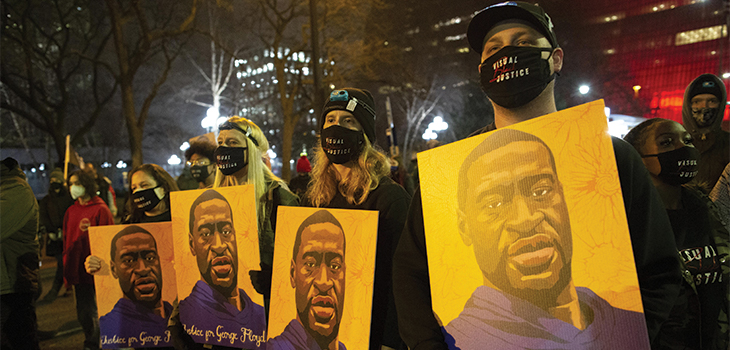
Michael Zander QC reports on the George Floyd case, now nearing its end
- The trial of the officer accused of causing the death of George Floyd in May 2020 is coming to a close.
- In the US, unlike the UK, a person can only be convicted of a serious criminal offence if the jury is unanimous.
Officer Derek Chauvin faces three counts under Minnesota’s homicide law:
- Second-degree unintentional murder (40-year maximum sentence)—the defendant unintentionally caused George Floyd’s death while intentionally inflicting or attempting to inflict bodily harm.
- Third-degree murder (25-year maximum sentence)—the defendant caused the death without regard for human life by an act that was eminently dangerous and evidenced a depraved mind.
- Second-degree manslaughter (ten-year maximum sentence)—the defendant caused the death by knowingly taking an unreasonable risk and consciously taking the chance of causing death or great bodily harm.
The prosecution case
The prosecution opened its case with the nine minute and 29 second video that went viral at the time of the









